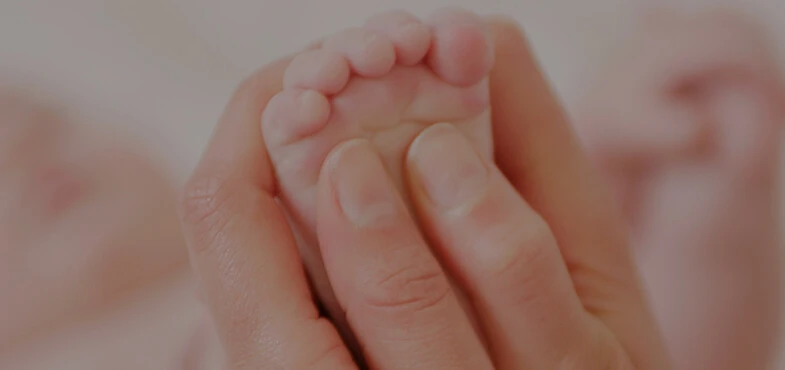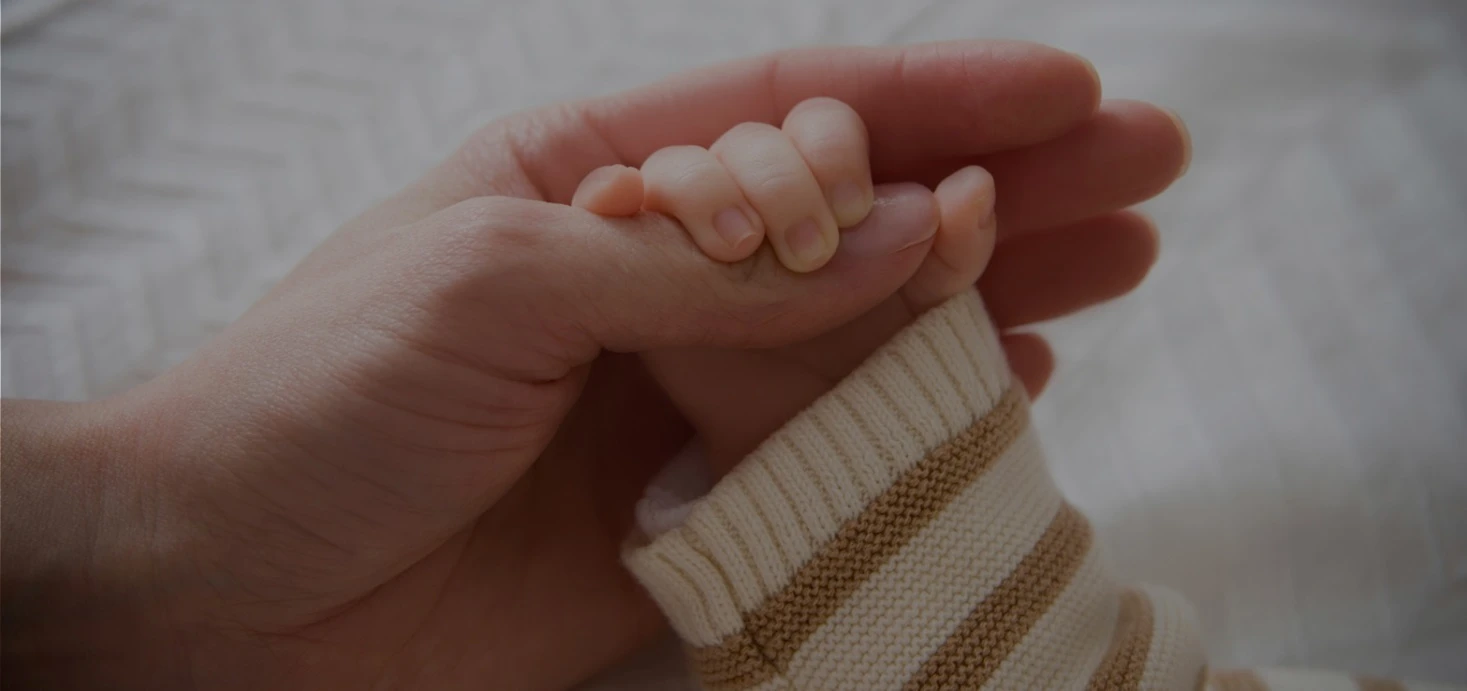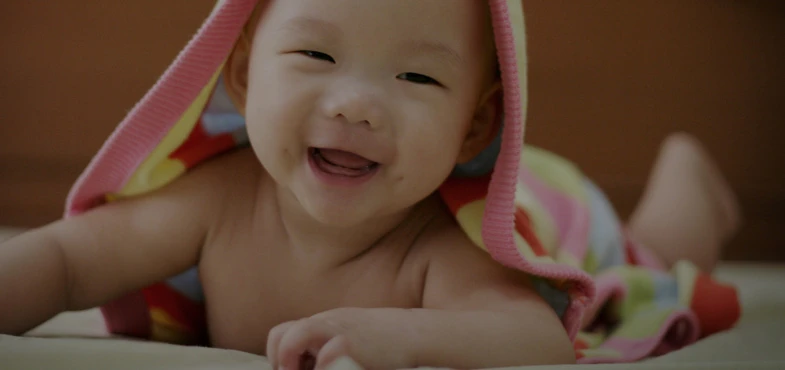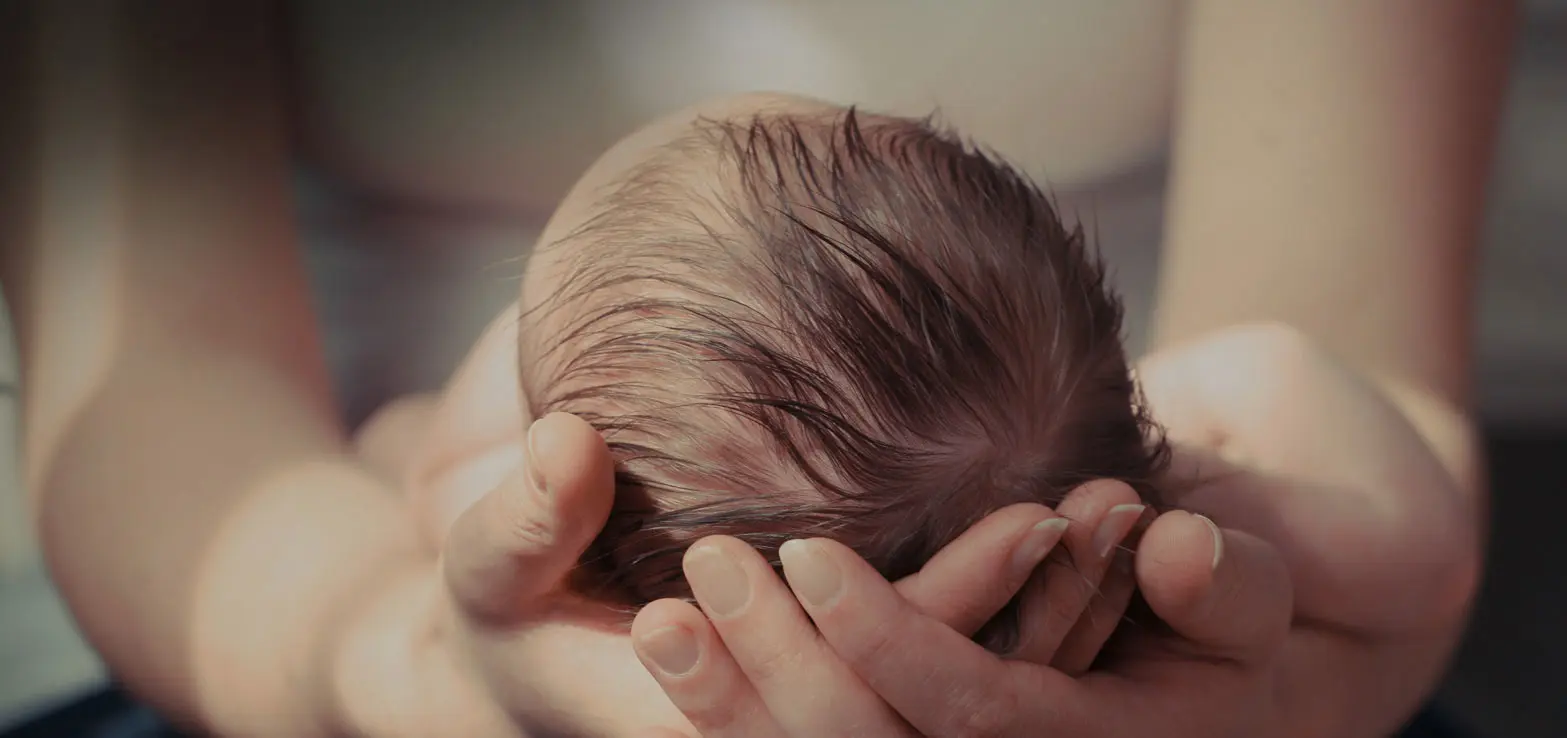Touch
Touch is the first sense that a baby develops. It begins inside the womb and is one of the most well-developed senses at birth.14
Studies show that:
Babies who experience routine touch and massage (compared to those who did not) are 50% more likely to make eye contact and three times more likely to have an overall positive expression, such as smiling or vocalising15
Touch and massage can improve the quality and quantity of sleep when part of a consistent routine13
Routine massage leads to improved cognitive performance and increased alertness and attentiveness in preschool children16
Many of the benefits extend longer term. Extensive physical contact with parents increases mental development in the first six months of life and evidence of improved cognition is present at eight years of age when compared to an infant receiving limited physical interaction.17
Smell
The sense of smell develops at approximately 28 weeks’ gestation.18 It is the sense most directly linked to memory and emotion. Immediately from birth, babies are capable of detecting different smells and linking them to different people.19
Studies show that:
Babies who smelled familiar scents cried significantly less after a routine heel stick compared to those who smelled an unfamiliar scent or no scent at all, supporting the theory that babies can remember scents and that a familiar odour reduces agitation.20
Babies given a scented bath looked at their mothers for a greater proportion of bath time, cried less and spent more time in deep sleep following a bath. The study also showed that parents were less agitated and had a greater feeling of relaxation when giving their babies a bath with a gentle scent.5
Sight
A baby’s vision starts to develop fully immediately at birth, however a baby needs to learn how to see.22 From this moment, making eye contact becomes its most powerful mode of communication,8 and there is an early and immediate preference for wide open eyes and a direct gaze. Within two to five days, an infant will look longer at a direct gaze compared to an averted gaze, and by four months its brain electric activity shows enhanced word neural processing when confronted by a direct gaze.
Sound
A baby has the ability to hear at approximately 25 weeks gestation. Sounds not only create memory in the auditory and language areas of the brain cortex, but also generate neurological connections to the limbic system (emotional memories) in babies.12
Studies show that:
Speaking with babies expands their vocabulary by 24 months of age.23
In a study involving Spanish-speaking families, babies who experienced more child-directed speech not only became more efficient in the processing of familiar words but also developed larger vocabularies by the age of 24 months when compared to those children who simply overheard conversations.23
Taste
Taste buds begin to form at approximately seven weeks’ gestation.21 However, more than 75% of taste comes from the sense of smell.21 Although a newborn baby can distinguish between sweet, salty, sour and bitter tastes, it has preference for the sweeter tastes. Exploration of smells and tastes is a fundamental and crucial part of early baby development.




